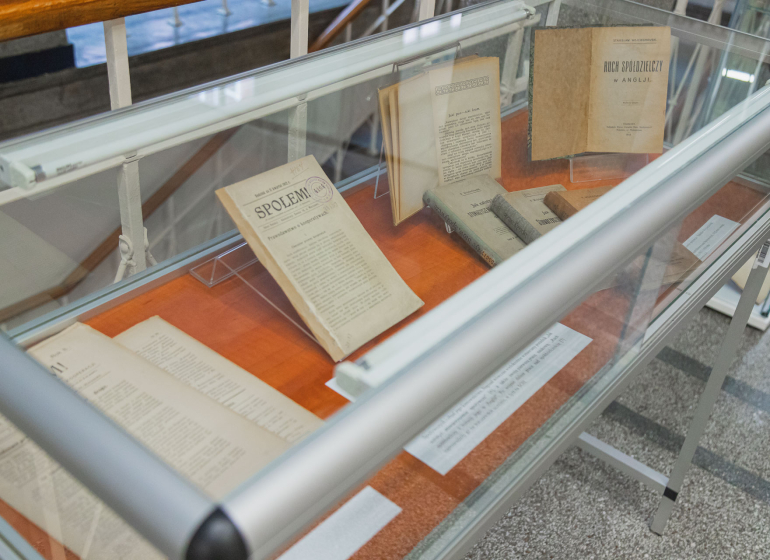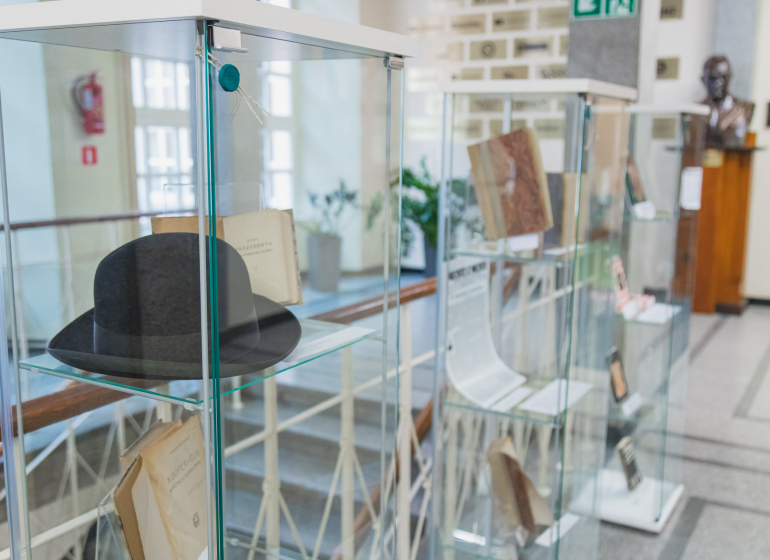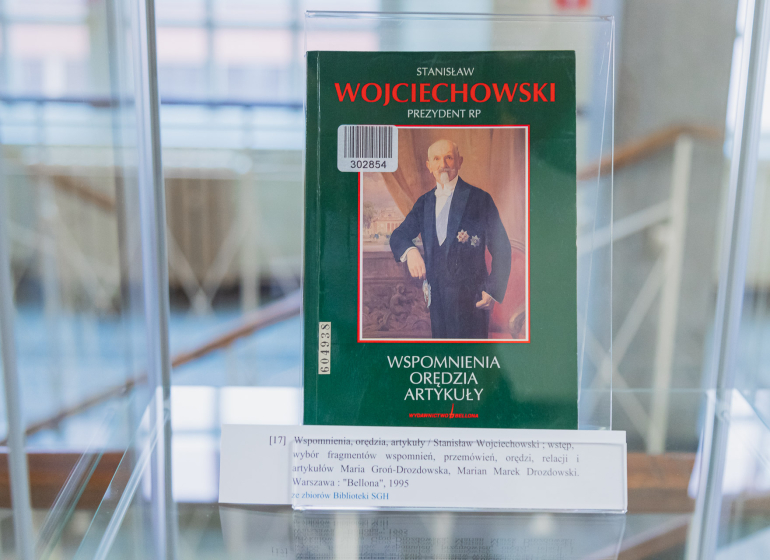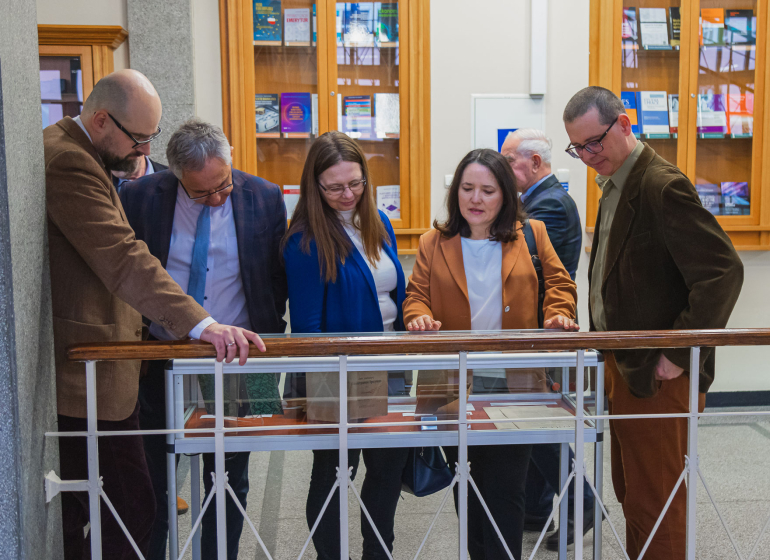Exhibition of academic and journalistic papers of Stanisław Wojciechowski – the “President from SGH”
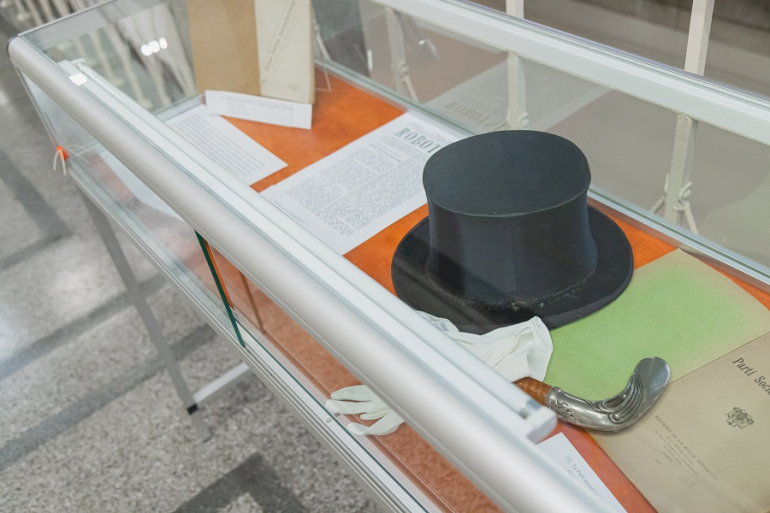
Opened on 18 November at the SGH Warsaw School of Economics, the exhibition presenting the academic and journalistic legacy of Stanisław Wojciechowski is another event that takes place as part of our School’s celebrations of the 100th anniversary of Stanisław Wojciechowski’s election as President of the Republic of Poland.
The exhibition conceptualised by dr Jerzy Łazor of the SGH Department of Economic and Social Policy has been prepared by the SGH Library based on academic papers, press articles and newspapers edited by Stanisław Wojciechowski (e.g., the “Społem!” biweekly). Visitors could enjoy the exhibition on Friday in the Rector’s Office, where the academic seminar titled “Stanisław Wojciechowski – politician, social activist, academic teacher” was held. The exhibition will be open again in December during the main celebrations of the anniversary.
During the opening of the exhibition, its author and substantive supervisor dr Jerzy Łazor underlined that its purpose was to present four significant aspects of the biography of the “President from SGH” – the conspiratorial independence-oriented efforts, his promotion of the co-operative movement, employment as scholar, and service as politician who assumed the offices of President, and earlier of the Minister of Internal Affairs.
The first part of the exhibition mostly concerns Wojciechowski’s conspiratorial activities and party-related efforts within PPS. Until 1906, which is when Wojciechowski quit the party, he closely cooperated with Józef Piłsudski, engaging in the structures of this organisation. In 1906, he broke his ties with PPS; however, he maintained contact with Piłsudski “He was sometimes called Vice-Grandpa,” dr Łazor recalled. Their friendship did not withstand the test of time in 1926, when Stanisław Wojciechowski resigned his office and ceased contact with the Marshall.
The second part of Wojciechowski’s activities presented in the exhibition covers the work as a social activist and proponent of the concept of co-operatives, which Wojciechowski was throughout his whole adult life. The heart of the exhibition is prof. Wojciechowski’s academic papers concerning the theory of cooperation and co-operatives which he published before and during his employment at the Higher School of Economics (the SGH Warsaw School of Economics since 1933). “He was our friend who lectured and gave classes at SGH many dozen years before us, between 1919 and 1939,” dr Łazor emphasised during the opening ceremony for the exhibition.
The exhibition features issues of the “Społem!” newspaper, edited by Wojciechowski. “Even before World War I, he wrote Jak założyć stowarzyszenie spożywcze (“How to Set Up a Consumers’ Co-Operative”), a guide which was reissued many times, as well as his first academic paper – Ruch spółdzielczy i rozwój jego w Anglii (“The cooperative movement and its development in England”). Further works on the cooperative movement led him to the Warsaw higher academic institutions, including to SGH,” as we can read in the text for the exhibition.
“Wojciechowski began lecturing about the co-operative movement and its history at Warsaw higher education institutions even before taking the office of the President. His first post-war book on this topic was published after his election by the National Assembly. When he withdrew from politics after the May Coup, in 1927, he wrote a biography of his former colleague from the co-operative movement and SGH, Romuald Mielczarski. Further years saw further books on the co-operative movement: Ruch spółdzielczy (“The Co-Operative Movement”) (1930), Organizacja zbytu produktów rolniczych: podręcznik dla szkół rolniczych (“Organising the sales of agricultural products – a textbook for farming schools”) (1931), Spółdzielnie rolnicze: jakie być mogą i powinny w Polsce według wzorów zagranicznych (“Farmer’s cooperatives – what they can be and what they should be in Poland in line with foreign standards”) (1936) and finally the monumental Historia spółdzielczości polskiej do 1914 roku (“The history of the Polish co-operative movement until 1914”) (1939). For the purpose of his lectures at SGH, he also wrote a textbook in 1930, titled Ruch spółdzielczy (“The Co-Operative Movement”).
Wojciechowski started writing down his memoirs in the 1930s. The first volume was serialised in the national-radical “Prosto z Mostu” weekly edited by Stanisław Piasecki, and was later published as a book. The second volume, unpublished, was destroyed in the fire during the Warsaw Uprising,” dr Jerzy Łazor wrote in his text for the exhibition.
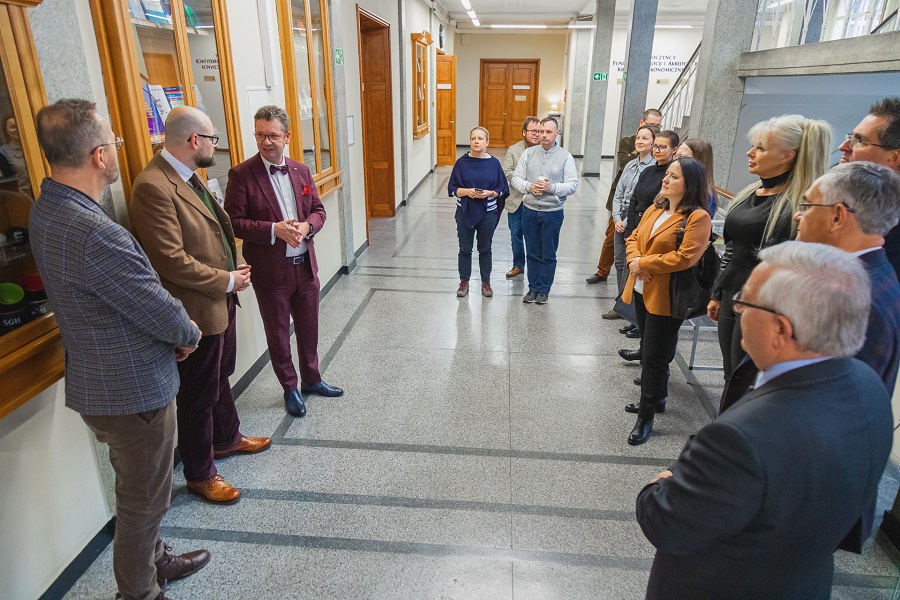
The Rector of SGH, dr hab. Piotr Wachowiak, prof. SGH, emphasised in his speech during the opening of the exhibition that the academic and journalistic legacy of Stanisław Wojciechowski is impressive and is a testament to the incredibly high intellectual level of our school already in the first decades of its operations. “We are proud that Stanisław Wojciechowski was the President of our country who came from the SGH community,” the Rector said. The Rector also thanked the Director of the SGH Library, Hanna Długołecka, for organising the exhibition. He also directed words of appreciation towards dr Jerzy Łazor who was responsible for the substantive content of the exhibition.
